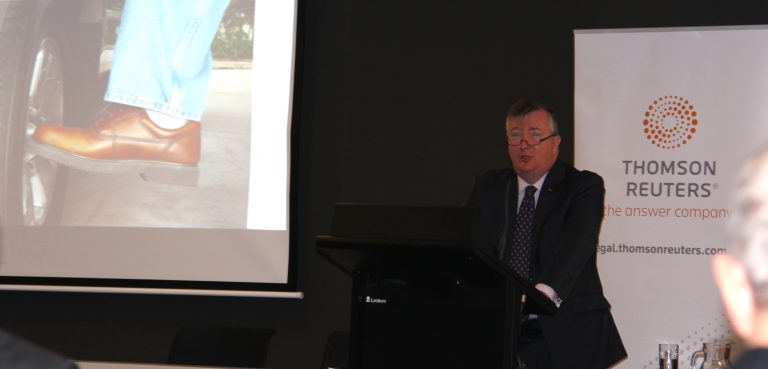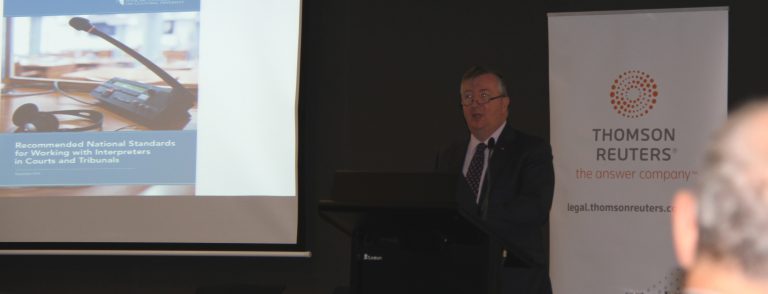Assisting your expert to assist the court
Experts and interpreters: non-lawyers essential to the legal system
Speaking at a CPD Breakfast Seminar at the NSW Bar Association on Wednesday 29 March 2017 presented by Thomson Reuters, The Hon Justice François Kunc (Supreme Court of NSW, and also General Editor of The Australian Law Journal), gave a summary of his "16 Rules for Experts"* when giving evidence in a matter.
[caption id="attachment_17174" align="aligncenter" width="768"] Experts should be there to "kick the tyres" and provide a reality check to proceedings[/caption]
Experts should be there to "kick the tyres" and provide a reality check to proceedings[/caption]
Drawing upon his wide experience from both sides of the bar table, Justice Kunc shared his observations on:
- the common misconceptions around the role and obligations of experts;
- issues of unconscious bias which may affect the quality of the expert evidence given;
- useful tips for how to properly brief your expert; and
- ensuring that the expert's evidence actually assists the court to arrive at the real issues in dispute, and facilitates the "just, quick and cheap resolution" of the proceedings (all of which in turn maximises the likelihood of a timely judgment and minimises the levels of judicial annoyance provoked by unnecessary obfuscation and experts who are poorly briefed or prepared).
In particular, Justice Kunc stressed the need for experts to uphold their Code of Conduct and maintain vigilance so as not to cross the line between presenting the evidence and "advocating" on behalf of their clients.
[caption id="attachment_17172" align="aligncenter" width="768"] The difference between experts being retained by a client and "acting" for their client[/caption]
The difference between experts being retained by a client and "acting" for their client[/caption]
His Honour also noted the often overlooked contribution of interpreters operating within Australia's legal systems, who are called upon (sometimes at short notice) to assume the role of lawyer, linguistic expert or counsellor, and anything in between. His Honour emphasised the essential role that interpreters play in the administration of and access to justice, and in ensuring procedural fairness for all the culturally and linguistically diverse communities who experience the Australian judicial system as jurors, litigants, or consumers of court information.
[caption id="attachment_17176" align="aligncenter" width="768"] The JCCD's Recommended National Standards for Working with Interpreters in Courts and Tribunals[/caption]
The JCCD's Recommended National Standards for Working with Interpreters in Courts and Tribunals[/caption]
Recognising the pressing need for nationally consistent guidelines and policies for these professionals, Justice Kunc flagged the forthcoming launch of the Recommended National Standards for Working with Interpreters in Courts and Tribunals, a framework developed by the Judicial Council on Cultural Diversity (JCCD), where Justice Kunc sits as a member of its specialist committee.
The JCCD is an initiative of the Hon Robert French AC, former Chief Justice of the High Court of Australia. Chaired by the Hon Chief Justice Wayne Martin AC, Chief Justice of Western Australia, the JCCD reports to the Council of Chief Justices of Australia (CCJ).
* Based on Justice Kunc's paper "16 Rules for the Compleat Expert" originally presented at the Australian Accountants, Lawyers & Directors Conference at Aspen, Colorado (January 2017).
